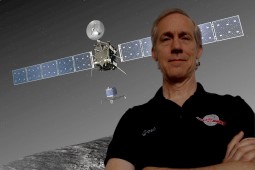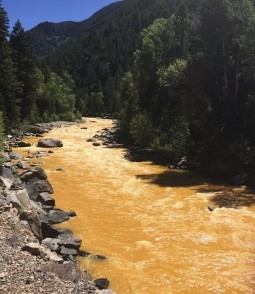
Photo credit: RiverHugger/Creative Commons
Science and Politics of Mining (start time: 6:49) On August 5 an inactive mine named Gold King, which had been leaking toxins for years, spewed more than 3 million gallons of toxic sludge into a creek that feeds into the Animus River in southwest Colorado. Its neon orange path of wastewater was shocking. But also shocking is the long history of acid mine drainage pollution and the lax regulations that allow mining companies to basically walk away from their disasters. Dr. Mark Williams, a professor of geography at CU Boulder, and an expert in mountain hydrology and hydrochemistry., has worked on remediation of several mines in the state. He speaks with How On Earth host Susan Moran about the anatomy of mines, how this disaster happened, what it suggests about the many other precarious mines in the state, and what should be done to prevent such disasters from happening.
Hosts: Susan Moran, Joel Parker
Producer: Susan Moran
Engineer: Joel Parker
Headline Contributors: Kendra Krueger, Joel Parker, Daniel Strain
Executive Producer: Susan Moran
Listen to the show:
Podcast: Play in new window | Download (Duration: 22:26 — 20.5MB)
Subscribe: RSS

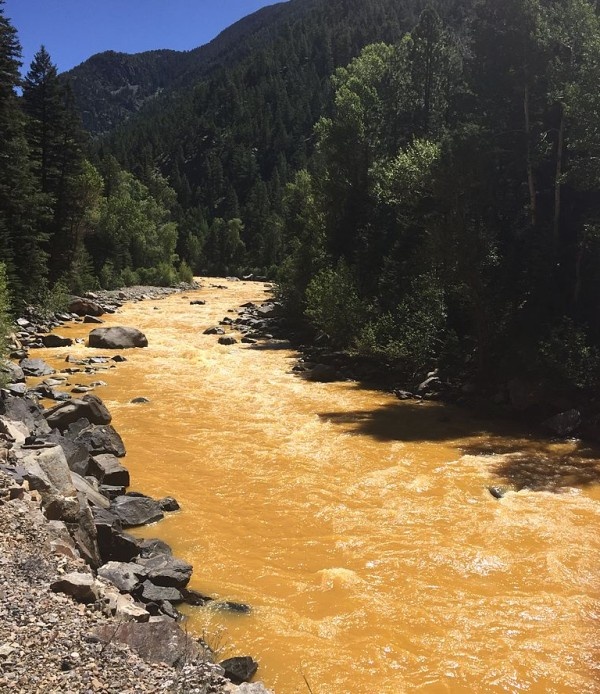


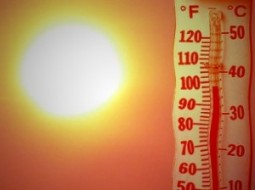
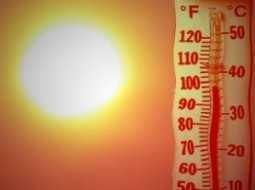
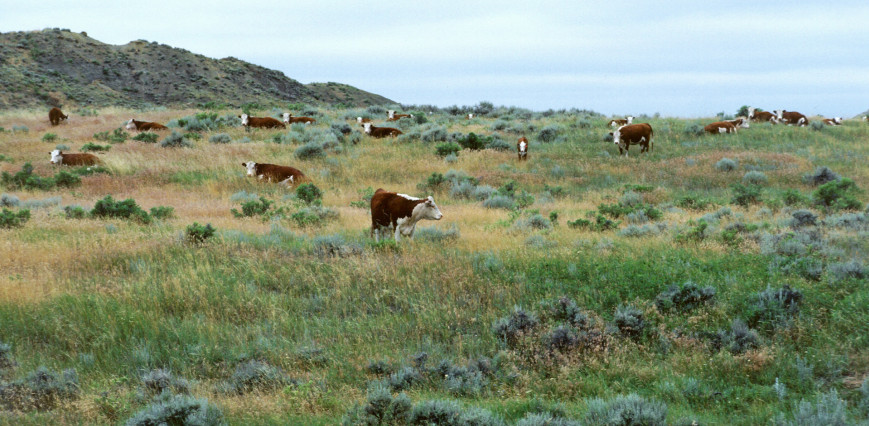
 When it comes to reducing greenhouses gases, every little bit helps, and that includes managing the greenhouse gases produced by how we grow our food. Raising livestock and growing crops both generate greenhouse gases, and to gauge their impact, a new study takes the long range view. The results were published in a paper: “Measuring and mitigating agricultural greenhouse gas production in the U.S. Great Plains, 1870-2000” in the Proceedings of the National Academy of Sciences. It analyzes 100 years of agricultural production, and it takes this look at farming close to home – it focuses on the bread basket of the United States – the Great Plains, which includes eastern Colorado. Here to tell us more are scientists
When it comes to reducing greenhouses gases, every little bit helps, and that includes managing the greenhouse gases produced by how we grow our food. Raising livestock and growing crops both generate greenhouse gases, and to gauge their impact, a new study takes the long range view. The results were published in a paper: “Measuring and mitigating agricultural greenhouse gas production in the U.S. Great Plains, 1870-2000” in the Proceedings of the National Academy of Sciences. It analyzes 100 years of agricultural production, and it takes this look at farming close to home – it focuses on the bread basket of the United States – the Great Plains, which includes eastern Colorado. Here to tell us more are scientists 
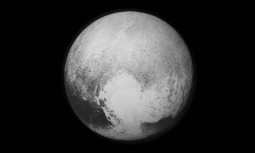 Pluto Flyby (start time 1:00): Joel Parker discusses the New Horizons mission from the command center live!
Pluto Flyby (start time 1:00): Joel Parker discusses the New Horizons mission from the command center live!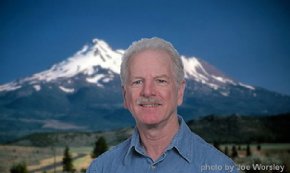
 Ketones (start time 6:40) A growing body of scientific research demonstrates health benefits for many people with a diet that’s lower in carbohydrates, and higher in fats. In fact, some of this research indicates great therapeutic benefits,. One reason why may be that, when carbohydrate consumption is low enough, the body enters a state of “nutritional ketosis,” where it transforms fats into a molecule called, beta-hydroxy-butyrate, or “ketones”. In the absence of sugar and carbs, the body can use ketones as its primary fuel.
Ketones (start time 6:40) A growing body of scientific research demonstrates health benefits for many people with a diet that’s lower in carbohydrates, and higher in fats. In fact, some of this research indicates great therapeutic benefits,. One reason why may be that, when carbohydrate consumption is low enough, the body enters a state of “nutritional ketosis,” where it transforms fats into a molecule called, beta-hydroxy-butyrate, or “ketones”. In the absence of sugar and carbs, the body can use ketones as its primary fuel.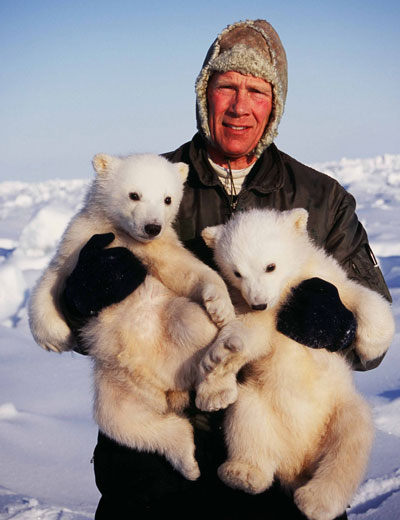
 Polar Bears (starts at 6:30): It is well known that, right now, life for polar bears looks bleak. Warming temperatures mean the season for sea ice cover in the Arctic has become shorter and shorter. As sea ice provides a home and hunting ground for polar bears, both the number of bears and their health has suffered. There is even talk of them becoming extinct. But is this something that we should worry about in Colorado and other non-arctic regions around the world? We don’t have bears, right now we don’t have ice, and we have plenty of other concerns. Dr. Steven Amstrup, the Chief scientist for Polar Bears International, joins us on How on Earth to explain why we should care. He thinks that polar bears are the sentinels of global health and that they provide advance warning of some of the challenges coming to all species. That includes us humans. But he thinks if we act soon, we can save both the bears and ourselves.
Polar Bears (starts at 6:30): It is well known that, right now, life for polar bears looks bleak. Warming temperatures mean the season for sea ice cover in the Arctic has become shorter and shorter. As sea ice provides a home and hunting ground for polar bears, both the number of bears and their health has suffered. There is even talk of them becoming extinct. But is this something that we should worry about in Colorado and other non-arctic regions around the world? We don’t have bears, right now we don’t have ice, and we have plenty of other concerns. Dr. Steven Amstrup, the Chief scientist for Polar Bears International, joins us on How on Earth to explain why we should care. He thinks that polar bears are the sentinels of global health and that they provide advance warning of some of the challenges coming to all species. That includes us humans. But he thinks if we act soon, we can save both the bears and ourselves.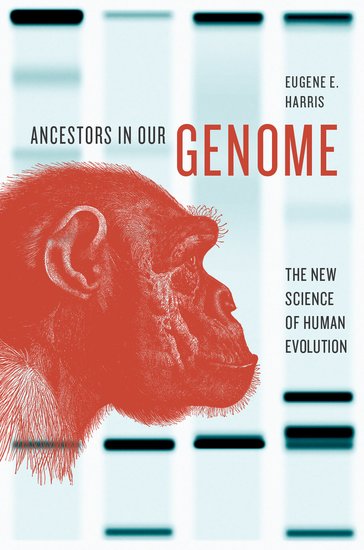
 We speak with
We speak with 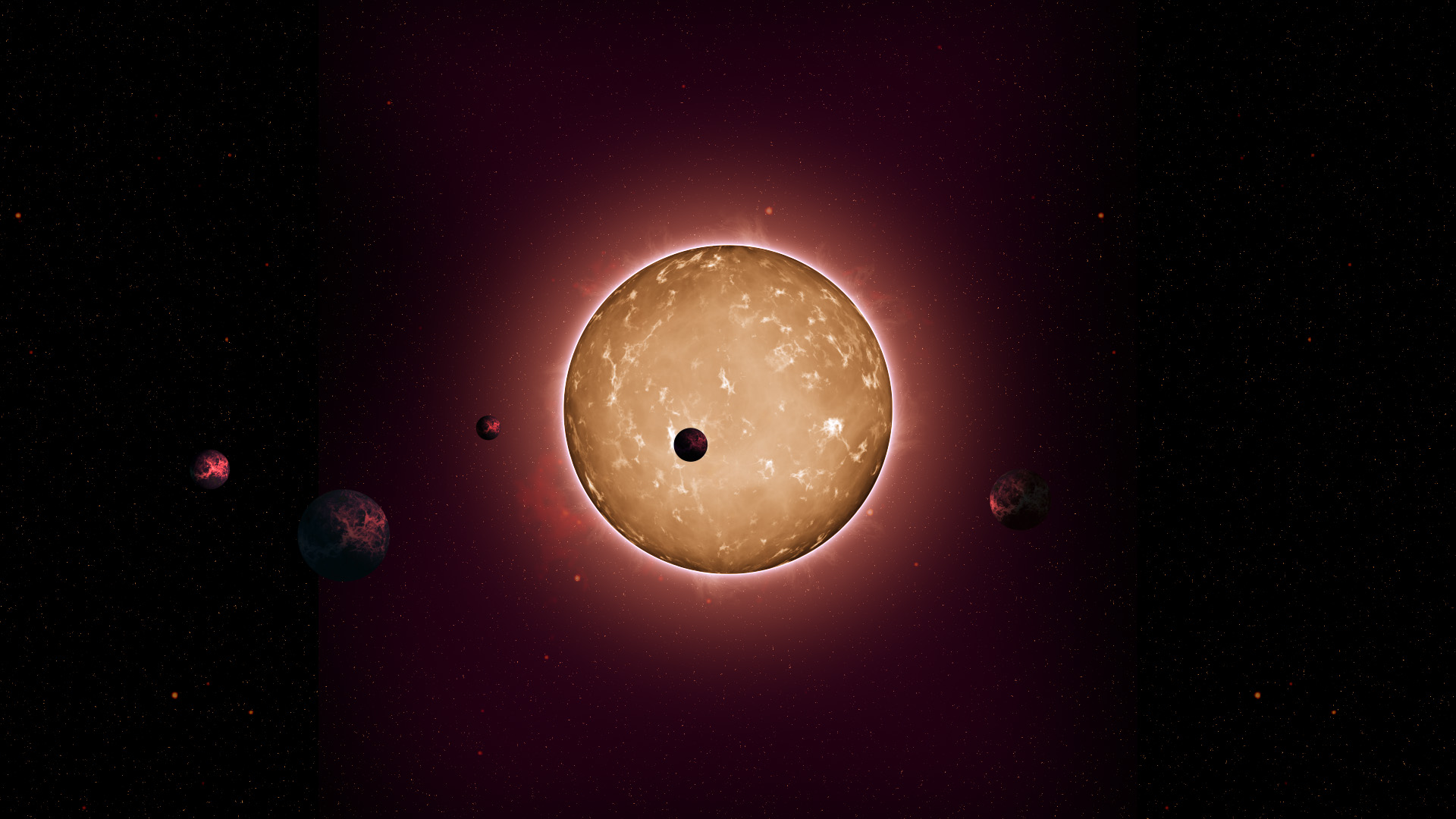
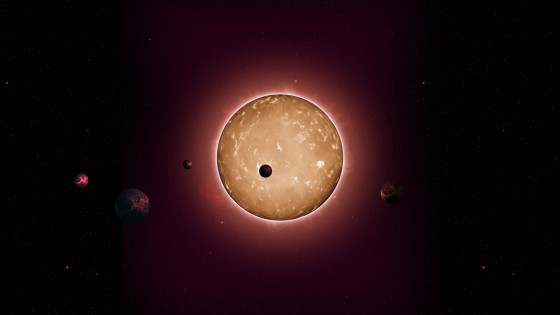
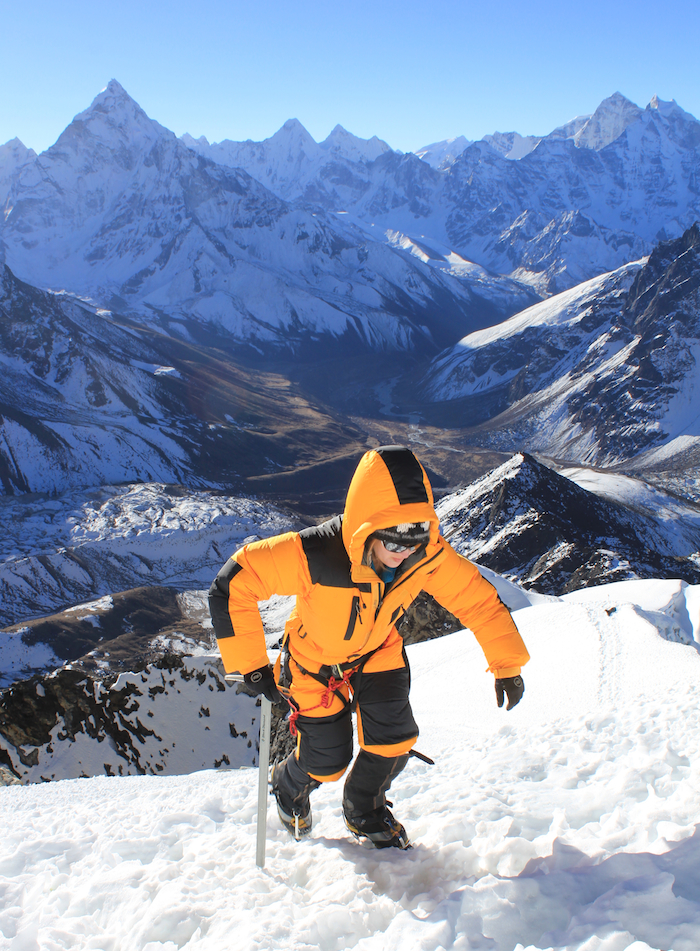
 Himalayan Glacial Lakes (starts at 5:20) Some scientists conduct their experiments in a laboratory — think clean white walls, artificial lighting, A.C. and a convenient coffee pot not far away. Not so for Ulyana Horodyskyj, a graduate student at the University of Colorado. For the last few years she’s been looking at glaciers and the lakes on top of them in Nepal. Last year she spent a year looking at how pollution affects glaciers high in the Himalayan Mountains. She hoped to set up the ultimate high-altitude laboratory on the oxygen-thin slopes of Mount Everest, but a fatal accident intervened. On this edition of How on Earth, she talks about her latest research, Himalayan glaciers and what it is like to do science at the top of the world.
Himalayan Glacial Lakes (starts at 5:20) Some scientists conduct their experiments in a laboratory — think clean white walls, artificial lighting, A.C. and a convenient coffee pot not far away. Not so for Ulyana Horodyskyj, a graduate student at the University of Colorado. For the last few years she’s been looking at glaciers and the lakes on top of them in Nepal. Last year she spent a year looking at how pollution affects glaciers high in the Himalayan Mountains. She hoped to set up the ultimate high-altitude laboratory on the oxygen-thin slopes of Mount Everest, but a fatal accident intervened. On this edition of How on Earth, she talks about her latest research, Himalayan glaciers and what it is like to do science at the top of the world.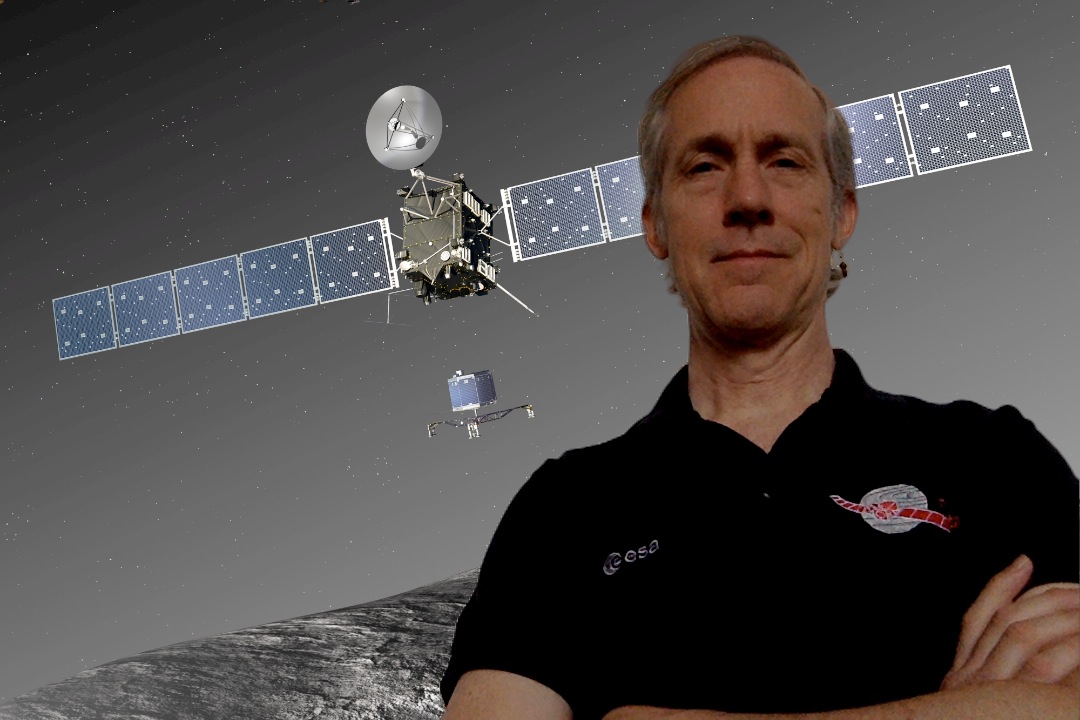
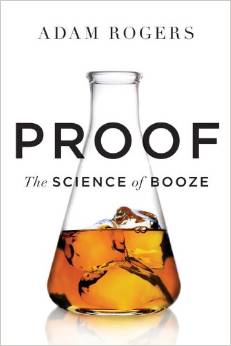 Proof: The Science of Booze (starts at 8:09): Science journalist
Proof: The Science of Booze (starts at 8:09): Science journalist 